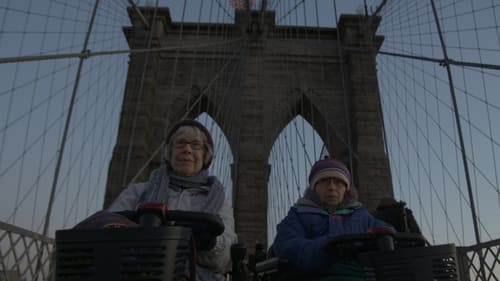
Executive Producer
Dos abuelas furiosas en sus scooters para discapacitados se embarcan en un viaje por los Estados Unidos. Ellas viajan desde Seattle hasta Wall Street en una misión para descubrir si el crecimiento económico perpetuo es posible. Shirley (90) y Hinda (84) crecieron durante la gran depresión. Ellas están, desde siempre, involucradas en asuntos políticos y sociales. De hecho, Shirley ha estado en la cárcel cerca de 20 veces por culpa de su activismo. La crisis financiera actual, el calentamiento global y la preocupación por el futuro de sus tataranietos las ha hecho cuestionar la opinión general de que existe una necesidad de crecimiento económico perpetuo. Este es el punto de partida de una aventura a través del país intentando encontrar respuestas a sus preguntas. (FILMAFFINITY)

Director
"Is it possible to feel rich without possessions? Can you live happily without money? In the documentary Living without Money, we meet the German woman Heidemarie Schwermer (68) who made a deliberate choice to live without money 14 years ago. One day she cancelled her flat, donated all of her belongings and started a new life based on exchanging favors without the use of money. The experiences she made totally changed her outlook on life.

Director
USA vs AL-ARIAN is a close portrait of an Arab-American family facing terrorism charges leveled by the U.S. Government. The film shows a personal story of a family living in a society where fear of terrorism has resulted in increasing stigmatization and discrimination against Muslims.

Director
We have seen it in the news hundreds of times: Palestinian children throwing stones at Israeli soldiers. We have seen it through the news camera lenses' distanced point of view, and thus we may have learnt to get accustomed to this absurd sight. Children who are born and bred as refugees in their own country and who learn that a violent rebellion is the only way out of the refugee camps for them. In A Stone's Throw Away we meet three such Palestinian children. They have grown up with armoured vehicles in the streets and soldiers with machine guns. They know no other reality than the war's. The unique thing with this movie is that it exclusively is told from the children's point of view. The camera follows them in their daily encounters with sharp-shooting soldiers and helicopters bombing neighbourhood buildings. They are children who grow up in the middle of a war zone. How will it mark them that they continuously witness that their friends of the same age get killed?



